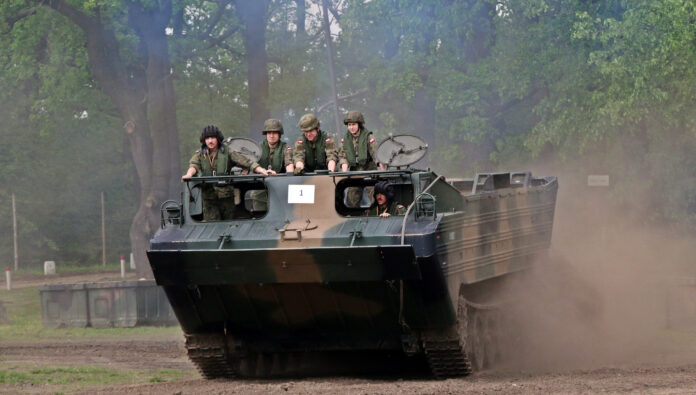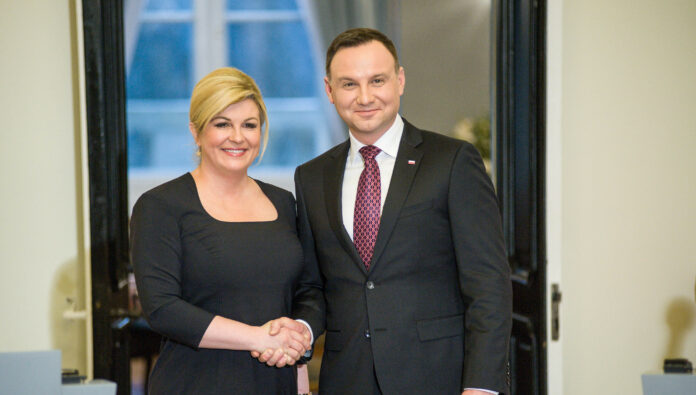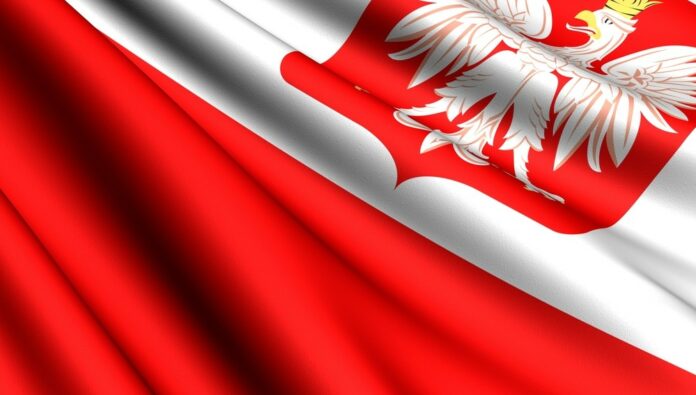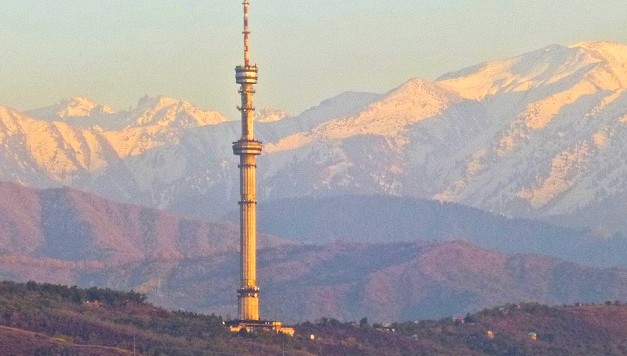The Polish Army has started the largest military exercises taking place in the country this year
This years largest military manoeuvres, under the codename Anaconda, were launched in Warsaw today. Over 12,000 of soldiers will participate in the event on Polish soil, with an additional 5,000 training in Estonia, Lithuania, Latvia and at the Baltic sea.
The Anaconda 18 military exercise has been divided into three stages: first out were the Command and Control exercises, which took place in October. It included testing the procedures used to pass on information from the level of national forces to NATO headquarters. The central point of Anaconda 18, namely the field exercises, started yesterday. The army will continue with that part of the exercises until November 6th. The final stage,the testing of leadership structures, will occur between November 26th and December 6th. Soldiers from 10 NATO allies are participating in Anaconda 18.
The aim of Anaconda 18 is to integrate the national leadership structures within the alliance in an effort to prepare strategic defense operations. On the Baltic Sea, soldiers will rehearse rescue operation in a scenario where passengers taken hostage on a ferry. The Anaconda drills have been held every two years since 2006 and are organized by the Operational Command of the Polish Armed Forces. The 2016 edition of the drills was the most sizeable one to date, with over 31 thousand soldiers from 23 countries participating.
The Polish Army is in the middle of an modernization process, about to replace much of its equipment which still dates back to the times of the Warsaw Pact. The conservative government has passed new legislation which will gradually increase Poland’s military expenditures from the current 2.0% of GDP to 2.5% of GDP by 2030. Polish President Andrzej Duda has suggested that the process could be sped up so that the figure of 2.5% would be reached as early as 2025.
What next for the Three Seas Initiative?
US Secretary of Energy, Rick Perry, will arrive in Poland today and is expected to sign an agreement on strengthened cooperation in the field of energy security. Poland is just one of the destinations on his trip to Central Eastern Europe. Perry will be holding a string of meetings with leaders in Poland, Hungary, the Czech Republic and Ukraine. The US Secretary of Energy visited Central Eastern Europe as recently as September, as the highest US representative at the Three Seas Initiative summit. His frequent visits to the region appear to confirm that the Donald Trump administration remains determined to increase the US presence in Central Eastern Europe in accordance with President Trump’s indication made by personally participating in the 2017 Three Seas Initiative Summit in Warsaw, Poland.
The Three Seas Initiative was launched in 2016, having been pushed by Polish President Andrzej Duda and Croatian President Kolinda Grabar-Kitarovic, as a forum grouping together EU member states in Central Eastern Europe. The name alludes to the fact that the countries in the region are located between the Adriatic, Baltic and Black Sea. The group is made up of 12 countries. The three Baltic States, Poland, Hungary, the Czech Republic, Slovakia, Romania, Bulgaria, Croatia, Slovenia and Austria. The main goal of the forum is to facilitate improvements to the relatively poor intraregional infrastructure connections.
The Three Seas Initiative (3SI) took further important steps at the 2018 summit in September in Bucharest, Romania. As Polish Prime Minister Mateusz Morawiecki stated in the joint press conference summarizing the summit, the project has now left the planning stage and implementation has begun. Three new organizational projects were launched at the meeting in Bucharest.
1. A Three Seas Business Forum will bring together representatives of large companies from the 12 countries with counterparts from the US, Western Europe and regions neighboring the 3SI such as the Western Balkan states, Turkey, Ukraine, Georgia and Moldova. The 12 states have compiled a short list of priority regional interconnection projects in the 3SI’s main fields of interest – transport, energy and digital. All projects on the list are government-backed and the Business Forum is intended to serve as a framework for cooperation on these projects between the 3SI and major business leaders. The Business Forum will convene annually in connection with 3SI summits.
2. A network of 3SI Chambers of Commerce was created to supplement the Business Forum. The Chambers of Commerce will have a supporting function of the Business Forum but will also serve to create direct links between business communities in the 3SI states.
3. A Letter of Intent has been signed to set up a joint investment fund for the Three Seas Initiative. The idea was originally promoted by the Polish National Development Bank BGK and quickly gained support from national development banks of other 3SI states. BGK will contribute 10% of the total value, if the investment fund which will finance projects worth 100 billion Euro over the next 30 years. The CEO of BGK Beata Daszyńska-Muzycka has stated that one of flagship projects of the investment fund would be to build a railway network connecting the Polish, Romanian, Croatian and Slovenian seaports with each other. Other projects include building up energy storage capacities in the region and digital monitoring of river pollution.
Two flagship infrastructure projects are currently in the works. The Via Carpathia highway, linking the north-south axis of the region all the way from Lithuania in the north to Greece in the South and a gas pipeline going from the recently built Świnoujście LNG terminal on the Polish Baltic coast to the planned LNG terminal on the island of Krk in Croatia. A new maritime law to facilitate its construction was passed in June and the deadline for the tender process expired on October 5th with three companies submitting bids.
The two LNG terminals in Poland and Croatia, as well as the gas pipeline running between the two will be able to supply large parts of the 3SI with natural gas, meaning that the Russian energy monopoly in the region can finally be broken. The US is expected to become the main supplier of LNG, with Poland already having signed long-term contracts for large amounts of American LNG. Indeed, this was Rick Perry’s main reason for visiting Central Eastern Europe this week. The Trump administration is eager to find new markets for its ever increasing production of natural gas, having recently gone from being an energy importer to an exporter. It also lies in the interest of the US to limit Russian influence in Central Eastern Europe, while also gaining its own foothold in a region where it’s economic presence has so far been limited.
Worried voices in Brussels and Berlin argue that the American interest in the 3SI serve to create an Central Eastern European “fifth column” within the EU, which would serve to defend US interest and sabotage a united EU front in negotiations with the US. This would be increasingly important, as the risk of a conflict on trade and tariffs between the US and the EU has not been fully averted yet. Germany subsequently applied for and were given, a partner status of the 3SI in 2018, as they hope to influence the project from within. The 3SI is entering into a crucial phase of its development and the coming years will show if the project’s high ambitions will actually be met. The next summit will take place in the summer of 2019 in the Slovenian capital, Ljubljana. A choice of venue which some commentators claim was picked in order to entice US President Donald Trump to yet again participate in the summit, while also being able to combine his first state visit to the home nation of his wife, Melania Trump.
The story of Witold Pilecki on Broadway
We are fortunate to live in times that a hero such as Witold Pilecki is remembered and commemorated by the whole world, despite the effort to erase him from the history books. The truth about his heroism was never forgotten. A New York Broadway Show dedicated to Pilecki’s secret mission is just another example of truth defending itself because a story of a man who volunteered to enter hell on earth, the Auschwitz concentration camp can never be forgotten.
United Solo Festival and the Polish Cultural Institute New York present The New York Premiere of The Auschwitz Volunteer: Captain Witold Pilecki a monodrama directed and performed by Marek Probosz.
The UNITED SOLO Festival was inaugurated by Polish actor, director and lecturer Omar Sangare. The 9th edition of the world’s largest solo theatre festival will present performers from 18 countries, 23 states, and 6 continents right in the heart of New York City’s theater district, Theatre Row. Since its first festival, United Solo has featured over 600 theater productions from all over the world in categories such as drama, comedy, dance, movement, storytelling, stand-up, multimedia, and musical theater.
Witold Pilecki was born on May 13th, 1901 in Olonets, Karelia, northwest Russia. He was a descendant of Polish patriots and raised with patriotic and Catholic values. In 1918 he sneaked into Poland, a country that just won its independence back after 123 years of occupation. At the age of 18 Pilecki began his military service. In 1919 he fought in the Polish-Soviet war and participated in several other battles such as the Battle of Grodno, the Battle of Warsaw, and Żeligowski’s Mutiny. He was awarded with the Polish Cross of Valour.
On September 1st, 1939, the Third Reich started World War II by invading Poland. The Polish Army was defeated in weeks, and many soldiers continued their fight in the partisan units. Witold Pilecki was one of them. He founded the Secret Polish Army with two others soldiers, which was one of the first underground organizations in Poland.
The activities that led to his secret mission began at the end of August 1940, the Secret Polish Army (SPA) management summoned a council discussing the current situation during which the issue of concentration camps was brought up. Poland for centuries was home to a large number of Jews, consequently the concentration camps were strategically located on Polish territory by the German High Command. The number of German death camps dramatically increased, so the leaders of SPA suggested that someone from their top management should enter the Auschwitz camp. The plan was to contact the imprisoned members of the SAP leadership, gather intelligence about the camp and organize an internal resistance. The intention was to free the prisoners by escaping or rebounding them. In September of 1940, Pilecki began his secret mission for which he volunteered. The 39-year-old officer walked into a German Nazi street roundup in Warsaw to get himself arrested and sent to Auschwitz.
Pilecki’s intelligence reports were among the first eyewitness testimonies of the cruelty and brutality at Auschwitz. Pilecki was subjected to brutal treatment until he escaped in April 1943. Soon after, he wrote a brief report, The Auschwitz Volunteer. The Broadway play is based on the report, translated into English in 1945. In the foreword, Poland’s chief rabbi Michael Schudrich wrote: If heeded, Pilecki’s early warnings might have changed the course of history. Pilecki’s story was suppressed for half a century after his 1948 arrest by the Polish Communist regime as a “Western spy.” He was executed and expunged from Polish history. Pilecki writes in staccato style but also interjects his observations on humankind’s lack of progress: “We have strayed, my friends, we have strayed dreadfully . . . We are a whole level of hell worse than animals!
Many wonder where he found the strength to face the challenge that history confronted him with. Some claim that the source of courage and heroism derived from his deeply spiritual life. Shortly before Pilecki’s death he addressed his daughter, suggesting she should purchase a book written by Thomas a Kampis The Imitation of Christ saying to her: It will give you strength.
Witold Pilecki was murdered with a shot to the back of the head, on May 25, 1948. He was executed by Piotr Śmietański, the communist slayer in Warsaw, in Mokotów prison.
European Banking Authority tests Polish banks
The most resilient bank in Europe is PKO bp, said European Banking Authority.
Two of Poland’s largest banks did very well in a recent EU-wide stress test of 48 European banks. Poland’s largest bank PKO BP was considered the most resilient bank of all the competitors. While Poland’s second largest bank Pekao was positioned in third. The test was conducted by the European Banking Authority and was meant to measure the resilience of EU banks at identifying potential risks and increasing market discipline. Both banks claimed that their adherence to a traditional business model based on secure financial instruments such as credits and deposits is minimizing the risk they would face in case of a financial crisis.
Polish power plants use less coal due to warm weather
The unusually warm weather this autumn has limited the demand for coal-based power plants.
The unusually warm weather this autumn has limited the demand for coal-based power plants. Polish coal production in September amounted to less than 5 million tonnes. Significantly less than the 5,6 million tonnes produced in September 2017. The trend of rising imports of coal from Russia has continued as Russian coal is currently considerably cheaper than Polish coal. The Polish energy sector is still heavily dominated by coal with over 78% of Poland’s electricity grid being powered by the „black gold”. However, demand is in decline, as that figure stood at 80 percent in 2016 and 90 percent as recently as 2005.
The Celebrations to honor The Independence Day
This year Poland celebrates the 100th anniversary since it regained independence. This occasion requires a proper celebration. The Ministry of Culture and National Heritage along with most cities in Poland invite everybody to celebrate this exceptional occasion. Warsaw has a broad range of enticing offer for those who wish to participate in honoring this historic event.
Concert for Independent Poland will take place at the PGE National Stadium, “Independent” Festival will take place on Krakowskie Przedmieście street, gala concert 100 for 100: Musical Decades of Freedom, in the Teatr Wielki – The Polish National Opera in Warsaw as well a movie premier “Independence” also taking place in the Teatr Wielki. These are main events co-organized by the Ministry of Culture and National Heritage. The celebration will rely on Poles and those of Polish heritage to rekindle the spirit of the past to make the celebration of the nations well earn independence a memorable occasion. This important anniversary takes place on November 11th and is likely to be one of the biggest state celebrations in contemporary Polish history.
CONCERT FOR INDEPENDENT POLAND
On November 10th, the day before the official Independence Day Holiday, The Concert for Independent Poland will take place at the PGE National Stadium. It will be an extraordinary vocal and musical spectacle. Artists will take the audience on a journey through the last hundred years of Polish history. There will be songs that accompanied the Polish Legions, soldiers fighting at Monte Cassino, as well as the defenders of the capital during the Warsaw Uprising. Songs that in difficult times gave hope when fighting the totalitarian regime, as well as tunes that accompanied joyous moments from parties past and present. The show will be broadcasted on public television, TVP and Polish Radio.
Entry to the concert will be free of charge.
„INDEPENDENT” FESTIVAL ON THE KRAKOWSKIE PRZEDMIEŚCIE IN WARSAW
On November 11th after the official state ceremonies at Piłsudski Square, the festivities continue at Krakowskie Przedmieście street. The organizers came up with two routes – White and Red – passersby will be able to stop at historical places and encouraged to join the further celebrations.
The White route has six stops, including workshops, concerts and performances. There will be a musical stage, with songs from Poland’s musical history of the last century. There will be a stop dedicated to Polish dances and a stop devoted to Masterpieces of Polish Art Cinema. There will also be attractions for children and specialties of Polish cuisine. Thanks to the support of the Chancellery of the President of the Republic of Poland, a special stop will be created called Exhibition of the White Eagle, and the National Center for Culture has planned the Exhibition of One Monument.
The Red route is dedicated to the achievements of the six fathers of Polish Independence: Paderewski, Piłsudski, Dmowski, Witos, Daszyński and Korfanty. Each location will be dedicated to the aforementioned men. The Bristol hotel will be Paderewski’s stop. Paderewski was a frequent guest at the hotel, so one of the hotel halls will resound with the composer’s music transmitted outside for the public to listen to..
Apart from the White and Red Routes, every hour there will be a guided tour along the Royal Route (Krakowskie Przedmieście), during which attendees will be able to learn the secrets of the architecture of Krakowskie Przedmiescie, find out who walked along the Royal Route, anecdotes and history from Warsaw salons.
The festival will begin at 1:00 PM and end at 10:00PM
GALA CONCERT “100 FOR 100. MUSICAL DECADES OF FREEDOM”
On November 11th at the Teatr Wielki – Polish National Opera a gala concert will take place as part of the project 100 for 100: Musical Decades of Freedom.
The program includes: Krzysztof Penderecki’s Fanfara and Te Deum, Beatus Vir op. 38 by Henryk Mikołaj Górecki and Piano Concerto in a minor composed by Ignacy Jan Paderewski. There will be performances from Mariusz Godlewski (baritone), Ewa Vesin (soprano), Karolina Sikora (mezzo-soprano), Arnold Rutkowski (tenor), Tomasz Konieczny (bass-baritone) as well as the Choir and Orchestra of the Grand Theater – National Opera under the baton of Jacek Kaspszyk.
MOVIE PREMIER „INDEPENDENCE”
On November 12th in the Teatr Wielki – Polish National Opera, the premier of the film “Independence” will be screened. It is co-produced by MKIDN and directed by Krzysztof Talczewski. The documentary is about Poland regaining its independence in 1918, fighting for Polish borders during the First World War, the Polish-Soviet war during the uprisings and plebiscites, also during the diplomatic struggle in Versailles.
The film was made from archival materials from 1914-1923, which until now have not been shown to the Polish audience. All materials have been restored and colored. The music was composed by Krzesimir Dębski. After the official premiere, the film will be available to the public for free on the Ipla platform offer.
Polish fashion in Kazakhstan
LPP opens its first store in Almaty, Kazakhstan and adds a 23rd country to its international expansion list.
LPP, the Polish giant on the clothes retailing market has opened its first store in a new market. It’s flagship brand Reserved has opened a 2400 square meter large store in Almaty, the most populous city of Kazakhstan. Kazakhstan will be the 23rd country that the company will be operating in. Further expansion is already in the works. A second store measuring 4600 square meters will open in the city by the end of this year and another one of the same size will open in the country’s capital city Astana in 2019. The company has set a goal to open its stores in a new market every year. LPP is planning to start operations in Finland and Bosnia in 2019
Retail tax reform stalled?
Polish govt. wants to curb tax evasion by multinational retailers. Since 2016 European Commission is researching project of Polish law and now sait it will do so untill 2019.
The European Commission will prevent the Polish government from implementing a new piece of retail tax legislation for another year. One of the main election promises made by the ruling Law & Justice Party ahead of the previous parliamentary elections in 2015 was to introduce a new tax on retail stores, who until now had been evading paying tax in Poland through tax planning schemes. The new tax law was passed in 2016 by the parliament and subsequently signed by the President but was never implemented. This was because European Commission had doubts about whether the introduction of a progressive tax system could be done in accordance with EU regulations. The European Commission is still investigating the issue and has therefore prolonged the frozen status of the Polish retail tax law until the end of 2019
Polish Central Bank bought gold
The Polish Central Bank has bought 13.7 tons of gold so far in 2018.
The Polish Central Bank has bought 13.7 tons of gold so far in 2018, bringing up the total Polish reserves to 116.7 tons. The Polish gold is worth around 4.6 billion dollars. The timing has been beneficial as the bank acquired the gold when prices of the commodity had been dropping for a while but have now bounced back up, as investors are becoming insecure about the stock market. The gold acquired in 2018 by the Polish Central Bank is now estimated to be worth 11 million dollars more than their original price.









